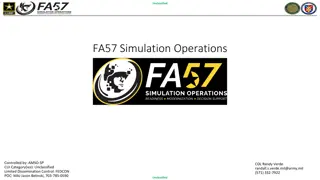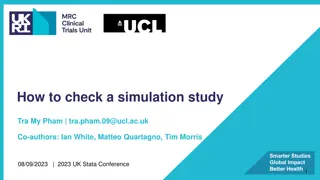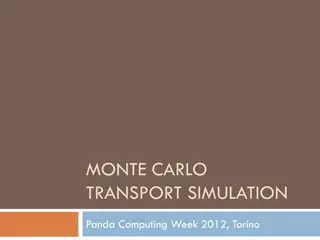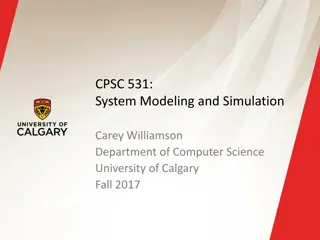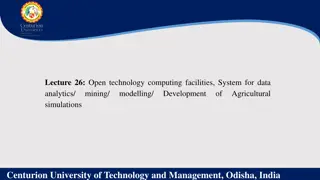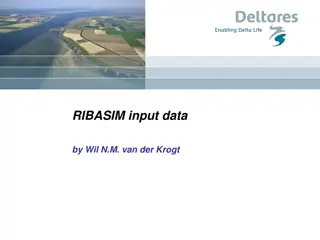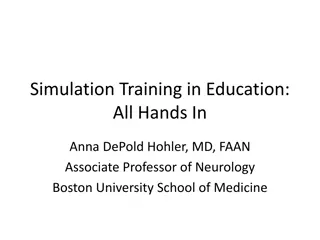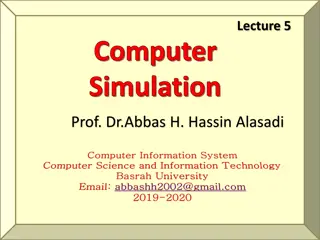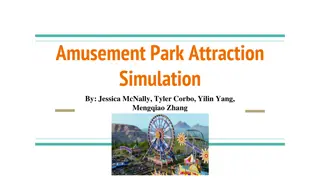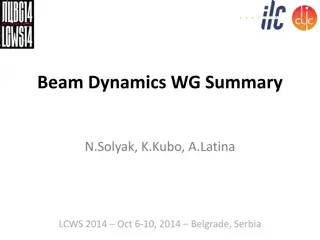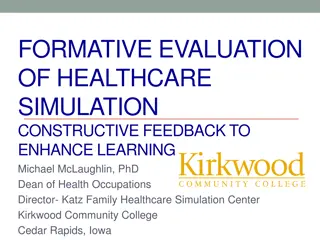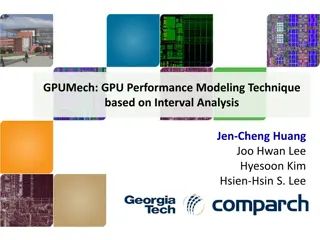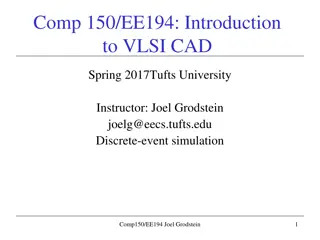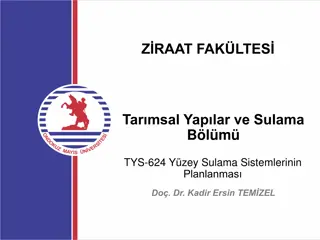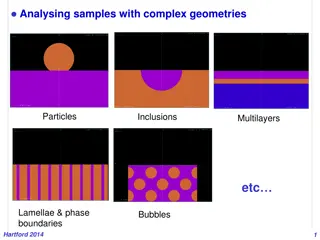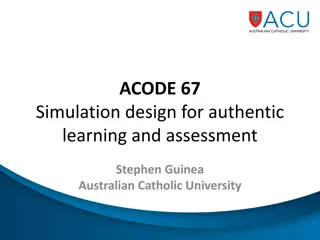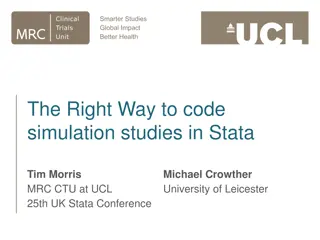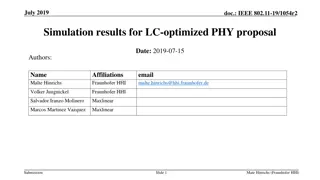Enhancing Training Through Simulation Techniques and Optimizing Performance
Simulation techniques play a crucial role in training programs, offering guided experiences that replicate real-world scenarios. By understanding learners' needs, fostering a safe environment, and facilitating debrief sessions, organizations can enhance clinical and procedural skills, teamwork, and leadership. The use of various simulation modalities, such as VR and simulated patients, helps in improving confidence and achieving clear learning outcomes. Collaboration within regional networks further supports training initiatives and continuous improvement in healthcare education.
- Simulation techniques
- Training optimization
- Clinical skills
- Teamwork development
- Healthcare education
Download Presentation

Please find below an Image/Link to download the presentation.
The content on the website is provided AS IS for your information and personal use only. It may not be sold, licensed, or shared on other websites without obtaining consent from the author. Download presentation by click this link. If you encounter any issues during the download, it is possible that the publisher has removed the file from their server.
E N D
Presentation Transcript
SIMULATION and OPTIMISING RETURNING to TRAINING Giulia Miles, Centre Manager Trent Simulation & Clinical Skills Centre Dr Caroline Brown, Assistant Director Postgraduate Education Nottingham University Hospitals NHS Trust
TSCSC 2004 Today Clinical and procedural skills Non- technical and professional capabilities Faculty development Patient stories High reliability teams Organisational Learning & Resilience Networks & partnerships Patient Safety Human Factors Learning from Excellence Safe Systems, Adaptable Teams, Capable Staff
Simulation is a techniquenot a technology to replace or amplify real experiences with guided experiences that evoke or replicate substantial aspects of the real world in a fully interactive manner. 1.Gaba DM. The future vision of simulation in health care. Qual Saf Health Care 2004;13(Suppl 1):i2 10.doi:10.1136/qshc.2004.009878
Sim Modalities Part task trainers VR Full immersion high fidelity simulation In situ sim Simulated patients
Clinical and procedural skills Effective teamwork and leadership Non technical skills and professional capabilities System Issues
Simulation journey Understanding learner needs Rehearsal for performance Safe Environment Transfer to Practice Develop confidence Clear learning outcomes Facilitated debrief Learn and re-learn Experiential learning Pre-briefing and preparation Demonstrate progress
Demonstration Simulated Patient
Regional Approach East Midlands Simulation Network Leicester Northampton Kettering Derby Nottingham IRiS scenario sharing platform Collaboration to Supporting RTT
NUH Scoping and understanding what trainees and trainers require Design and deliver a pilot day (Sept 18) Developing local network Develop effective learning needs analysis tool
An enhanced Learning Needs Analysis approach for individual and team skills, behaviours and patient safety capabilities Situational Judgement Responses What each employee: UNDERSTANDS DOES NOT UNDERSTAND MISUNDERSTANDS What each employee s: CONFIDENCE is in what they think they understand Which employees are likely to: Apply the RIGHT knowledge with high confidence Which employees are likely to: Apply what is WRONG and potentially influence others Which employees will benefit from: Receiving focused COACHING and feedback in practice
+100 ROLE MODELS & TALENT IDENTIFICATION CONFIDENCE & CAPABILITY TO EMBED IN PRACTICE UNDERSTANDING ONGOING DEVELOPMENT OF SPECIFIC KNOWLEDGE WITH TRAINING 0 PRIORITY DEDICATED ACCESSIBLE KNOWLEDGE & TRAINING DEVELOPMENT -100 0 50 +100 CONFIDENCE Low understanding with high confidence = Priority Development Required RISK Low understanding with low confidence = Significant Knowledge Focus NOVICE TRAIN Below benchmark understanding with varying confidence = Knowledge Focus High understanding with low confidence = Coaching Confidence COACH High understanding with high confidence = Above Standard TALENT
Find out more: Caroline.Brown2@nuh.nhs.uk giulia.miles@nuh.nhs.uk www.trentsimulation.nuh.nhs.uk Follow us:@TrentSimulation



